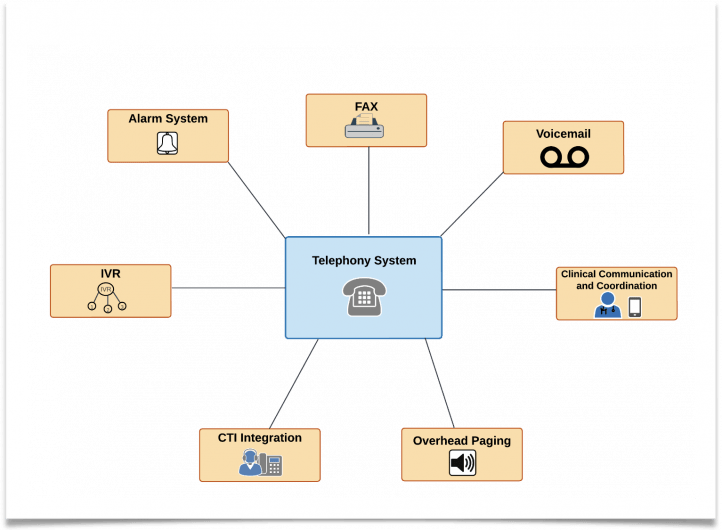Are you thinking about migrating your on-premise UC solution to the cloud?
Is your executive management team pushing you on the cloud initiative?
Migrating to the cloud does make sense for a lot of business applications.
However, for Unified Communications [UC] it may, or may not, depending on the business you are in, your workflow and the business drivers behind the same.
In this article we will go over some of the key things to consider before migrating to the cloud.
This document is not about why you should or should not move to cloud UC.
Content Index
- What is the role of telephony in your business?
- In which countries does your business operate?
- What is your call volume?
- How complex is your current dial plan?
- Why are call volumes important?
- Dealing with common area phones?
- Do you make a lot of international calls?
- Do you have a large pool of DIDs?
- Conclusion
What is the role of telephony in your business?

3 questions to answer.
- Is telephony a significant part of your business workflow?
- Is it revenue generating or is it an expense?
- How critical is it for your business function?
Let’s take an example of a retail chain selling clothes or electronic equipment.
They are most likely not going to make any sales via a telephone call. A potential customer in the store deserves more attention than a potential customer on the call.
Sales agents inside the store most likely are not using instant messaging the presence features. There is most likely zero collaboration between store employees and the corporate headquarters except for the store manager.
Compare that with the headquarters of the same retail store. The employees in the headquarters will depend a lot on the collaboration feature.
They will be calling each other, chatting with each other, sharing files and collaborating over web conferences.
A full-fledged Unified Communications solution is critical to the corporate employees whereas a minimal telephony function is all a store requires.
Take another example from a different vertical, healthcare.
Telephony is a very critical component for healthcare. People can lose their lives if telephony is not working in a critical care department.
Imagine a situation where you cannot call or page the anesthesiologist during a surgery.
What if patients are not able to call the hospital to schedule or change their appointment?
Communication is a very critical component in healthcare and telephony plays a crucial role.
Whether you go for an on-premises or cloud solution depends heavily on the role of telephony in your business function.
What kind of integration do you have?

Some businesses have telephony integrated with multiple other components. Healthcare for example integrates their telephony with clinical communication and coordination systems.
These integrations are critical for the business and should be taken into consideration before making a move to the cloud.
Other common integrations are paging and intercom.
In which countries does your business operate?

Telephony is a regulated business in most countries for various reasons. Your company’s presence in different countries can pose different challenges when migrating to cloud or keeping on-premises.
If your business is only in one country or only in North America, it is relatively easier to migrate to the cloud.
Countries like India and China have very strict regulations on toll-bypass and even the origination and termination of calls. In Europe, the regulations vary between countries especially if you are dealing with customer records over the phone.
Also, when you migrate, keep in mind how you will continue with the interoperability between your current system and the new cloud system.
Does your business have a presence only in only one country/continent or in multiple countries where the regulations are different.
What is your call volume?

Do you have a call center and how it is integrated with your telephony?
The nature of your call center and how it is integrated with your telephony can be a big decision maker when migrating to the cloud.
Some large businesses have large call centers which is an entirely different unit by itself. Call center users may or may not integrate with the rest of the corporate telephony.
In some cases they use two different clients, one for call center and one for corporate telephony. In some cases both corporate telephony and call centers use the same client and end device.
When migrating to cloud you need to decide whether the call center is also going to migrate to cloud. If not, how will call center users communicate with the rest of the company?
There are so many use cases for this particular situation depending on the kind of business and the inter-company interaction that happens.
How complex is your current dial plan?

Are you a business with a simple and straightforward dial plan where everyone either dials all 10 digits full number or 5 digit extension to reach others?
Or are you a large enterprise with a complex dial plan, thousands of translation rules and different caller ID requirements?
If so, you may need to carefully plan what it takes to migrate out of your on-premise system to a cloud system and ensure that your users will not use key functionality when you migrate out of the current system.
What other equipment uses telephony?

Several other systems use telephony for communication and may still be using the POTS line. FAX, Security System and Fire Alarm systems are common in most businesses.
While many of these have moved to newer technologies, make sure you account for these. For example, we once ran into a security system that was using pulse dialing (yes, you read it right), and it was not very long ago.
Watch out for old buildings, there is a very good chance that you may have some very old legacy equipment still using ancient technology.
Why are call volumes important?
Why is your call volume so important?
Because billing is very different in traditional telephony and cloud UC. Most cloud UC providers bill you based on a per user model.
However, with traditional telephony you are billed based on the actual usage.
So it is important that you take the call volume average across the users and see if the per user price your cloud vendor provides makes sense.
Dealing with common area phones?
Most companies with large office space will have common area phones.
You need to take into consideration moving these phones also to the cloud.
Since cloud telephony is mostly user based licensing, you need to ensure that these phones are not left out.
Also, in most cases there are calling restrictions put on these phones to avoid misuse. It is important to ensure that the same restrictions can be applied when you migrate to the cloud.
Do you make a lot of international calls?

If your business makes a lot of international calls, you may want to pay attention to the per-minute billing to places where you make such calls.
Also, not everyone in the business usually have the privilege to make international calls. You want to ensure that such restrictions can be applied to your cloud telephony system.
When will your current system reach end of life or support?
You have to consider when the support contract ends for your current on-premise telephony provider. If it is a leased system, when will the lease end. You also want to see what is your current contract with the telephony service provider.
Do you have a large pool of DIDs?

Large companies usually buy decentralized digital identities [DIDs] in bulk.
Though they may only be using a fraction of these numbers, they buy an entire range with future expansion in mind.
When you migrate your numbers to a cloud provider, they usually charge you a minimum fee per month for each number they maintain.
When you have thousands of numbers, these can add up a big amount every month.
Conclusion
As you have learned from this article, migrating your Unified Communications to the cloud needs answers to several questions.
Don’t jump into migration because it’s the fashion of the day. Do it because you have assessed the pros and cons and have arrived at an informed decision.
If you need help migrating your UC to the cloud, or helping you decide whether it’s a good idea at all, Consltek is happy to do this. Reach out.




